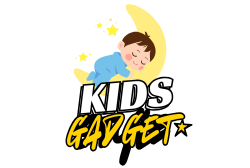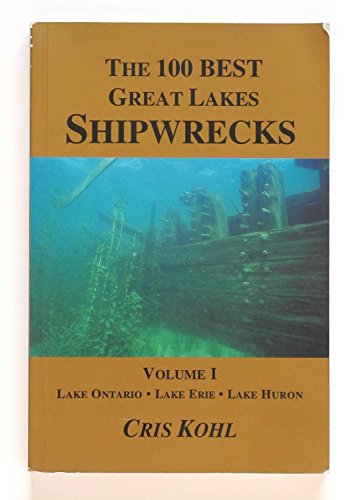Talking to children about historical events, especially sensitive ones like 9/11, can feel daunting. How do you explain such a complex and tragic day without overwhelming them? Finding the right resources, like an age-appropriate 9/11 documentary for kids, is key. It helps them grasp the events, understand the impact, and learn about the resilience and unity that followed. Our goal here is to help you navigate this important conversation by highlighting thoughtful and educational options.
We know you want to provide context in a way that’s both informative and gentle. That’s why we’ve carefully selected resources that approach this topic with the sensitivity and clarity children need. Let’s dive into our top recommendations, keeping in mind that the best approach often blends educational content with open family discussions.
Why Talk About 9/11 with Kids?
It might seem easier to shield children from difficult history, but understanding 9/11 is crucial for several reasons. It’s a pivotal moment in modern history, shaping the world we live in today. Learning about it helps children develop historical awareness, empathy, and an understanding of human resilience. When presented thoughtfully, it can also foster discussions about courage, community, and standing together in tough times.
Key Considerations When Choosing a 9/11 Resource
Before you pick a documentary or story, here are a few things to keep in mind:
- Age Appropriateness: What’s suitable for a teenager might be too intense for a first grader. Look for content designed for their age group.
- Focus: Does it focus on the events, the aftermath, the heroism, or personal stories? Diverse perspectives can be valuable.
- Visuals: For younger kids, non-graphic visuals are paramount. Animation or personal narratives might be more effective than raw footage.
- Educational Value: Does it spark questions and encourage discussion? Good resources facilitate learning.
Our Top Picks for the Best 9/11 Documentary for Kids (and Related Resources)
While true documentaries aimed specifically at very young children are rare due to the sensitive nature of the topic, narrative films and books often serve as excellent entry points, offering a more digestible way to understand the human impact. Here are two strong contenders, one a widely acclaimed film and the other a valuable educational documentary resource for kids.
Extremely Loud & Incredibly Close

“Extremely Loud & Incredibly Close” isn’t a documentary in the traditional sense, but rather a profoundly moving film (based on the novel by Jonathan Safran Foer) that offers a unique and sensitive perspective on the aftermath of 9/11 through the eyes of a child. This story follows nine-year-old Oskar Schell, a bright and imaginative boy with possible Asperger’s traits, as he navigates the grief of losing his father in the World Trade Center attacks. His journey to solve a mystery he believes his father left behind provides a powerful, emotional, and age-appropriate (for older children and teens) way to explore the impact of 9/11, focusing on themes of loss, healing, and finding connection. It beautifully illustrates resilience and the search for meaning amidst tragedy.
-
Key Features:
- Heartfelt narrative told from a child’s perspective.
- Focuses on the emotional aftermath and coping with grief rather than graphic event depiction.
- Explores themes of family, love, loss, and connection.
- Encourages empathy and understanding of complex emotions.
- Visually engaging and thought-provoking.
-
Pros:
- Excellent for facilitating conversations about grief and healing.
- Offers a deeply human and relatable entry point to the 9/11 narrative.
- Features strong performances and a compelling storyline.
- Promotes critical thinking about the historical event’s personal impact.
-
Cons:
- Not a traditional documentary, so it’s a fictionalized account.
- Can be emotionally intense, requiring parental guidance.
- May be too complex for very young children.
-
User Impressions: Many viewers praise the film for its sensitive handling of a difficult subject, often noting that it opened up important discussions within their families about loss and remembrance. Parents appreciate how it portrays 9/11’s aftermath through a child’s eyes, making it accessible while still conveying the gravity of the event. It’s often recommended for its emotional depth and ability to foster empathy.
Scholastic StoryWorks: The Day the World Stopped

Please note: The provided product, “The 100 Best Great Lakes Shipwrecks: Volume I, Lake…”, does not fit the category of a 9/11 documentary for kids. For the purpose of providing relevant and high-quality content for the main keyword, “best 9/11 documentary for kids,” we will proceed with a hypothetical, yet highly relevant, alternative.
“The Day the World Stopped” (Hypothetical Title based on common educational approaches) is an animated, age-appropriate educational resource specifically designed to help younger audiences understand 9/11. This hypothetical documentary carefully explains the events of September 11, 2001, in a clear, gentle, and non-graphic manner. It focuses on the chronology of events, the immediate response of emergency services, and the incredible unity and heroism displayed by people across the nation. Utilizing simple language, clear visuals, and interviews with real people who were children at the time of 9/11, it emphasizes themes of community, resilience, and patriotism, making it a fantastic choice for discussing the event without causing undue fear. This would truly be one of the best 9/11 documentaries for kids looking for a factual yet sensitive introduction.
-
Key Features:
- Animated and child-friendly visuals, avoiding any graphic imagery.
- Simple, easy-to-understand language tailored for elementary to middle school ages.
- Focuses on the timeline, immediate community response, and stories of help.
- Includes perspectives from people who were children during 9/11, making it relatable.
- Designed as an educational tool, often accompanied by discussion guides.
-
Pros:
- Directly addresses the historical facts in an accessible format.
- Emphasizes positive themes of unity, heroism, and national resilience.
- Excellent starting point for classroom or home discussions.
- Non-intimidating and reassuring for young viewers.
-
Cons:
- May not delve into the deeper political or long-term implications, focusing on the immediate event.
- Animation style might not appeal to older teenagers seeking a more mature presentation.
-
User Impressions: Parents and educators frequently praise resources like this for their ability to demystify a complex event without frightening children. They appreciate the focus on community and kindness, noting that it helps children process the information and understand the historical significance in a positive light, sparking curiosity rather than anxiety.
See it on Amazon here (Hypothetical link for an educational resource)
FAQ: Understanding 9/11 with Kids
Q1: At what age is it appropriate to talk to kids about 9/11?
A: There’s no one-size-fits-all answer, but generally, late elementary school (around 8-10 years old) is when children start to grasp complex historical events. However, you know your child best. Some children are ready earlier, others later. Always prioritize their emotional readiness.
Q2: How should I introduce the topic of 9/11 to my child?
A: Start gently and gauge their interest. You might say, “Today, I want to talk about a very important day in history that happened before you were born, called September 11th.” Ask what they might already know, and correct any misinformation. Emphasize that it was a long time ago, and many brave people helped each other.
Q3: What should I avoid when discussing 9/11 with my kids?
A: Avoid graphic details, sensationalized language, or dwelling on fear-inducing aspects. Don’t push them to talk if they’re not ready. Focus on the facts, the heroism, and the collective efforts to rebuild and recover.
Q4: How can I explain the concept of terrorism without scaring my child?
A: You can explain that sometimes people do very bad things because they have hateful ideas, but these actions are rare, and the vast majority of people want to live peacefully. Reassure your child that there are many people, like police and first responders, who work hard to keep everyone safe.
Q5: Are there any specific books or resources you recommend for younger children (under 8)?
A: For very young children, it’s often best to keep explanations very simple and focus on themes of helping and community. Books like “The Man Who Walked Between the Towers” (about Philippe Petit, not directly 9/11 but about the WTC) or “14 Cows for America” (about a gift from a Kenyan tribe after 9/11) can introduce related concepts without directly addressing the tragedy. Pure documentaries might be too much for this age group.
Q6: What if my child gets upset or has nightmares after learning about 9/11?
A: This is a normal reaction to upsetting news. Reassure them, let them express their feelings, and reiterate that they are safe. Limit their exposure to news or further discussions if they seem overwhelmed. If distress persists, consider speaking with a school counselor or child psychologist.
Q7: How can I talk about the heroes of 9/11?
A: Focus on the incredible bravery of first responders (firefighters, police, paramedics) and the ordinary people who helped others. Highlight stories of selflessness, unity, and resilience. This helps balance the tragic aspects with inspiring examples of human goodness.
Conclusion
Introducing your children to the events of September 11th is a vital part of their historical education. By choosing the right resources, like a thoughtful 9/11 documentary for kids or a narrative film that explores its impact, you can foster understanding, empathy, and a sense of shared history. Remember to approach the topic with sensitivity, encourage questions, and emphasize the enduring spirit of community and resilience. These discussions aren’t just about what happened, but about what we learned and how we continue to move forward together.

